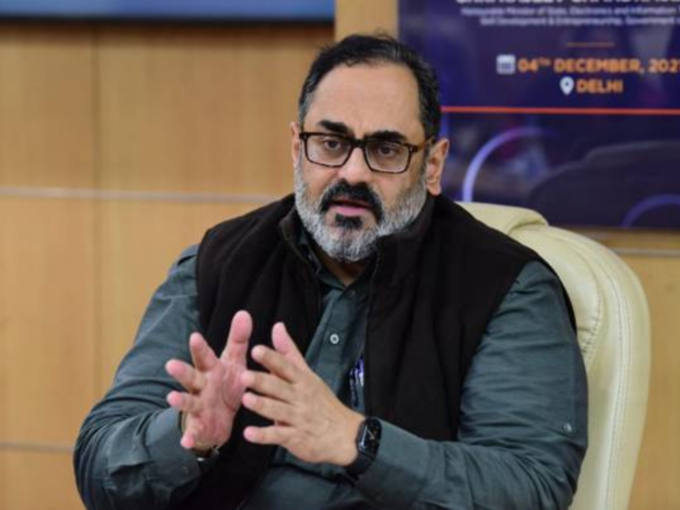New law would be a benchmark legislation in terms of what jurisprudence around internet should look like: MoS IT
The new regulations should not put excessive compliance burdens on startups and that the laws should be flexible: Minister Rajeev Chandrasekhar
Minister calls for a global concerted effort to make big tech giants accountable

In a big statement, the Minister of State for Electronics and IT, Rajeev Chandrasekhar, has called for a ‘new digital law’ to replace the ‘dated’ Information Technology Act, 2000.
Speaking at a NASSCOM conference, Chandrasekhar said that “a new digital law that takes into account aspects like citizens’ right to privacy, is needed to keep pace with the time.” He further added that the proposed new digital law would be a benchmark legislation in terms of what jurisprudence around the internet should be like.
He was essentially referring to the Data Protection Bill that has been in limbo for the past three years. He also added that the bill may take some more time to take shape as the government does not want to rush into it.
Interestingly, after years of delay, the Joint Parliamentary Committee recently in December 2021 finally tabled its long-awaited report on the Personal Data Protection Bill, 2019.
Adding a word of caution, Chandrasekhar said that, “Any new law should not be rigid and too focused on the present. Rather, it should be flexible and open to wide interpretation, given the evolving nature of the technology space.”
He also said that the new legislation should not put excessive compliance burdens on startups and that these new regulations should be flexible.
Chandrasekhar also took potshots at social media giants, calling for a concerted global collaboration to make big tech players like Facebook and Google accountable.
He was quoted by Financial Express as saying that, “If we are to bring some sanity and some consistency in the way big tech platforms should be accountable to communities and society at large, countries will have to come together and cooperate. Often this attempt to regulate or even to create some sort of sanity and rules and accountability is spun as a challenge to free speech.”
He also added that, “While digitising our democracy is important, keeping our democracy safe and ensuring technology is deployed in a trusted manner and in an accountable manner is equally important.”
This continues an ongoing saga of confrontation between the Indian government and social media firms.
Earlier this month, the Ministry of Information and Broadcasting (MIB) officials had pulled up Google, Twitter and Facebook executives for not proactively removing “fake news” on their platforms.
Before this, even the Andhra Pradesh High Court had rebuked Twitter for failing to act on abusive content against certain HC Judges.
With this, the MoS joins the chorus of Ministers calling for stricter rules to make social media giants ‘accountable.’ Earlier this month, Information Technology Minister Ashwini Vaishnaw had said that social media players need to be held more accountable for women’s safety, adding that stricter rules could be brought forward in this regard if there is political consensus on the matter.
This is notwithstanding the new IT Rules that came into effect in May last year. These rules set a three-tier oversight process for digital media and OTT platforms. Additionally, under the laws, social media apps have to take down objectionable content within 36 hours of receiving a complaint from competent authorities.
This conversation around data protection comes in the backdrop of a recent decision by the Centre to ban 54 more apps and games of Chinese origin.
Add to this, MIB has so far issued multiple orders to block over 60 social media handles spreading fake news.
Bringing in a new digital law is the need of the hour, but as with previous experiments by the Centre, the issue is fraught with pitfalls. The introduction of new IT Rules had invited the ire of human rights activists saying these laws could muzzle free speech. Although an over encompassing law could protect privacy, the question remains about the parameters within which it will evolve.










